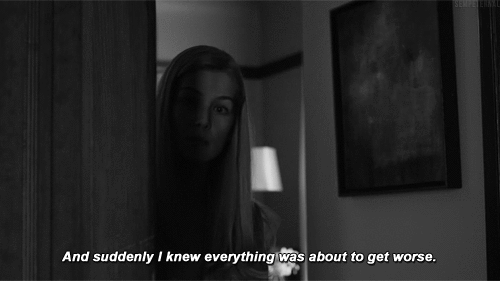Four days into thirty six, and I am filled with good resolutions. None of
your humdrum ones either, no, these are little lifestyle changes that,
if done properly, should reclaim all the parts of me that are scattered
everywhere. The first one is to not check my phone the first thing when I
wake up. It's harder than it sounds, so I've taken to putting my phone
on charge in the dining room, which means I have to leave the coziness
of bed to get it. It means that my mornings belong to me again, the
outside world does not interfere until I allow it to, and I wake up
slowly, eyelids fluttering, echoes of sleep still everywhere. I lie in
bed then, sometimes I think about my dreams: when you look at a phone as
soon as you get up, you don't remember your dreams anymore. Sometimes I
talk to K, sometimes I think about the day ahead and what I'd like to
do. It's become sort of
precious, this
just-this-house-just-this-bed time. Of course, since social media is a
hard habit to break, I felt a bit fidgety this morning, but my brain
learned to deal with the fidgets, it produced a train of thought for me
to go down, a cat appeared to walk across my chest and meow for her
breakfast. If you think of waking up each day as a rebirth, then every
morning is the day you are born, you do a little accounting with
yourself: how do I feel today? Are all my limbs intact? I feel in a
better mood than I have on several mornings, I feel bright and alive.
The other thing I have done, and maybe I shouldn't mention it until it
takes is started a reading journal. A "Book of Books" which is an idea I got from
this article,
earlier this year, but never thought to take up. However, starting to
diarise again, no matter how small and specific, has been good for me.
Because while the pages of my notebook are filling up with what I'm
reading, and what I'd
like to read, and books on my to-be-read
pile and so on, there's also insights into my state of mind, which I
wouldn't have thought of had I not been writing all my bookish thoughts
down. Pamela Paul, the author of that article, felt the same way, she
loved opening her "Bob" to see how her tastes had changed, how one genre
influenced another and so on. I have gotten out of the habit of hand
writing anything, but slowly--and with the help of a beautiful pen--I'm
hoping to reclaim it.
This week in books and reading: The book that inspired me to begin this in the first place was
Jonathan Strange And Mr Norrell
by Susanna Clark, a book it felt like the whole world had read except
for me. I came home from Goa and found a copy waiting for me, part of
Bloomsbury's new editions of some of their more popular books. In many
ways, the cover of my copy is what drew me in, it was so beautiful, this
mysterious woman done in shades of flame orange and burnt sienna, the
satisfying heft of it, even the
font, never say that new
editions are a waste of time, because they can draw in the most unlikely
of readers. Having tried to read this book several times in the past,
especially when it first came out and everyone was reading it, and
having abandoned it, I only picked it up because I wanted something fat
and solid and maybe a little fantastic. To my joy, I realised it was the
book that Jane Austen would write if she wrote books about magicians. I
loved it, despite, or perhaps because of the fusty language, the
"shewed" for "showed," the "surprize", the descriptions of history laced
with magic, the hundred footnotes at the bottom of the pages. It's been
so long since a book has felt like serendipity, look, here I was all
along, and here you are, come to discover me. I think that's a sort of
falling in love as well, of all the libraries in all the world, and here
you are, in mine.
Now I've finished it, however, and my own Bob is teeming with ideas
about what I should read next, and since a friend kindly gave me an
Amazon gift voucher for my birthday, I bought four books off that and am
reading one right now:
Still Life by Louise Penny (that I am
currently reading) (the first in a series of detective novels about a
Canadian inspector called Gamache, and I have heard nothing but good
things.) (I don't normally buy crime novels, but it's a genre I enjoy SO
MUCH that I'm just going to own to it, guilt-free). I also bought
Deep South by Paul Theroux (
review),
The Penguin Book Of The British Short Story: From PG Wodehouse to Zadie Smith (
review) and The Parasites by Daphne du Maurier (
review.)
This week in parties: My own birthday party last week
was excellent, and here is a photo of me and K dressed as Mario and
Princess Peach respectively.
Our cook made a feast, and everyone drank and ate and talked, and it was all very civilised.
And because it's December in Delhi, literally my favourite time of the
year, everyone's so social! And in such a good mood! We have become very
Adult about our socialising and have created a
shared Google calendar,
just so you know we're that couple now. I'm not sure what use it is,
because I keep diligently marking down all the parties we've been
invited to, and K, just as diligently, asks me "what do we have on
Wednesday?" But hey! At least the CONCEPT is grown up.
This week in food and drink:
Kofuku
for my birthday dinner with just the two of us. Lovely. Perhaps the best
Japanese food I've had and the sushi was soooo good. And it's in the
weird dystopian Ansal Plaza which makes it even more exciting.
Town Hall with my friend Nayantara, where because of
MCD something or the other, they've stopped their terrace seating, which
is too bad, because it was a very pretty terrace, however, we sat
downstairs, she gave me a gorgeous box of Ruskin Bond inspired hand
painted stationary and we drank copious amounts of wine.
Then
Indian Accent, the new one at the Lodi,
with my friend Shrayana, and we drank MORE wine and ate: panko crusted
chillis stuffed with goat cheese, baked fish, bacon kulchas, mushroom
kulchas, daulat ki chaat and a surprise birthday cake! Mmmm.
Then my friend Samit's birthday party last night, where he served up this insane haleem and nihari from some place called
Purani Dilli? Sadly,
I was too full from all the fried fish he waved in front of us for
starters to do much justice to the meal, but out of greed, I tasted
everything.
It's been a good week.
This week in stuff I wrote:
A response to the Cat Person short story in the New Yorker for Scroll. ** I've also started to put a lot more of my archives on
my blog, so please look at it also.
Sunday link list
It’s true that the bulk of these seventeen—seventeen!—stories
sound like Tom Hanks movies. Or rather, they are stories that could
have been written by an alien whose only exposure to the planet earth is
through Tom Hanks movies … This book-shaped object made of cardboard
and paper was never going to be a book exactly. It is a gift,
something that parents give to their college-bound children as revenge
for making themselves difficult to understand … in four hundred pages,
there’s hardly even a hint of conflict or a suggestion that American
life is anything less than a holiday where everyone rides Schwinn bikes,
leaves the immigration office to go bowling, and has a dog named
Biscuit.
And that’s where memory—whether direct, or received from elders or pop
culture—can be most subjective. As bad as the present may seem, the
people who actually lived in those “simpler times” had less education,
less health care, less equality, and less ability for economic and
social advancement than today. It’s a little like the fallacy of
past-life regression: no one ever thinks they were once a lowly peasant,
or died of disease at birth. But we couldn’t have all been princes or
kings. Now is still the
greatest time to be alive, in other words, for the vast majority of humankind.
You’re exceptionally hairy. A shock of
bristly setae covers your body and face to help you keep warm, collect
pollen, and even detect movement. Your straw-like tongue stretches far
beyond the end of your jaw, but has no taste buds on it. Instead, you
“taste” with other, specialized hairs, called sensillae, that you use to
sense the chemicals that brush against particular parts of your body.
Jen: But the prime minister is the second-worst plot
in a movie with 855 plots (number approximate). Can someone tell me
what the meeting when PM Grant and President Billy Bob Thornton was
*actually* about? Anyone? Anyone at all?
Tanya: It was about creating more tension between Hugh and Natalie. She was "his" in his mind because he had a crush on her and her chocolate biscuits and tea.
Jen: Which is *ridiculous.* Would the prime minister
of Great Britain really take a stand against ... whatever he was
discussing with the president ... just to declare his secret love for an
aide? Please say the answer to this is no, please say the answer to
this is no ...
Tanya: Well, um ... huh? I think someone's calling me.
- Tis the season
to rewatch Love, Actually and have arguments about it
I'm Harry Potter! The Dark Arts better be worried, oh boy.
- What happens when
a bot rewrites Harry Potter? HILARITY, THAT'S WHAT.
At my Delhi school one day, a seven-year-old in my class found out
that my middle initial “A” stood for “Abdul.” He declared it was
something to be ashamed about—rather viciously for his young age and in
the unrelenting manner that children do when they pounce on an
embarrassing secret. I realised at that early age that my Muslim surname
was unlikely to ever be an asset and was best kept to oneself when it
could be helped.
- On
being Muslim in India
Engraving can make anything—even the most humble of junk store
finds—feel a little more precious. Adding a personal message quickly and
easily transforms a tchotchke into something meaningful. For instance,
last year I found a WWII-era brass compass for my fiancé. I polished it
up, took it to my local jewelry store, and had them etch in a phrase
that—I swear to god—came to me in a dream.
- I love t
his DIY gift guide by Atlas Obscura most of all the gift guides.






















